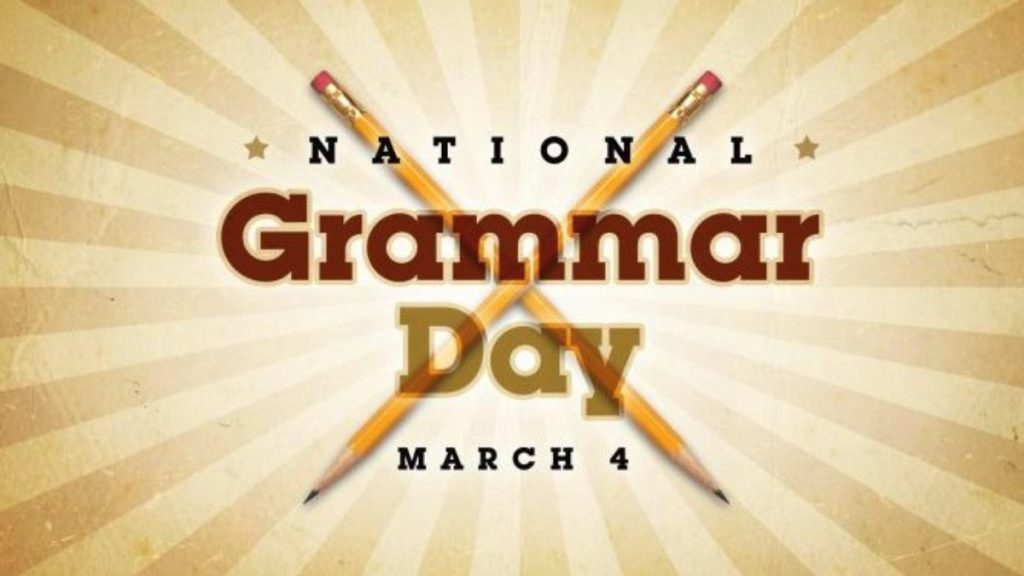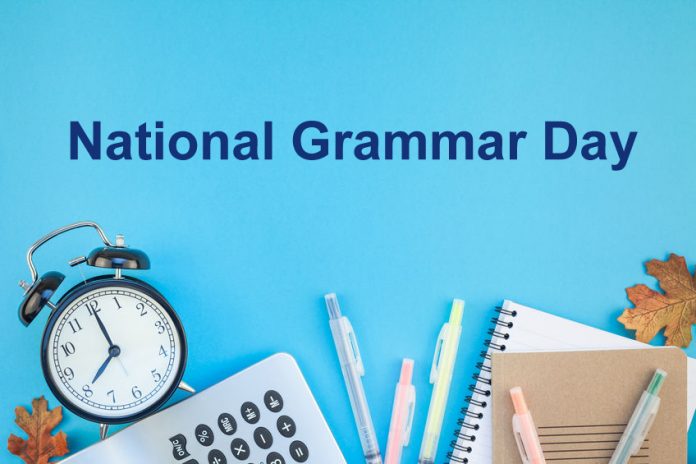For many, the idea of grammar brings back frustrating memories of English classes in school, red pens, and rewriting hundreds of sentences to learn about proper grammar rules.
However, grammar does not have to be intimidating. National Grammar Day, celebrated by wordsmiths, writers, editors, and word-lovers alike, is held each year on March 4 to celebrate good grammar and to promote good grammar, writing, and speaking skills in everyday life.
What Is National Grammar Day?

National Grammar Day is a relatively new holiday. Started by the Society for the Promotion of Good Grammar in 2008, National Grammar Day is meant to simply promote good grammar.
In 2010, National Grammar Day was hosted by Mignon Fogarty, a grammar guru and the author of Grammar Girl’s Quick and Dirty Tips for Better Writing and The Grammar Devotional. Fogarty took promoting the holiday under her wing, helping to create a National Grammar Day song and to promote the event throughout the Internet.
- What Is Aromatherapy Vs. What Are Essential Oils?
- What is La Tomatina in Bunol, Spain Like? What to Expect at the Famous Tomato Throwing Festival
Celebrating National Grammar Day
The point of National Grammar Day is to promote good writing, grammatical, and speaking skills all year long. To celebrate National Grammar Day, those who love and fear grammar can do many things to celebrate the event and improve their grammar at the same time.

- Research grammar myths There are many forms of grammar and usage that speakers of any language think are correct, but are actually incorrect. Curious revelers can research common grammar myths to clear up any confusion once and for all.
- Read grammar-themed comics Grammar does not have to be boring and stiff. For fun-loving grammar gurus, celebrate National Grammar Day by reading grammar-themed comics on the Internet.
- Purchase and read a book about grammar There are many books out there about grammar. To celebrate National Grammar Day, pick up a copy of Strunk and White’s Elements of Style to improve grammar skills. For those looking for a lighter read, try looking up The Great Typo Hunt by Jeff Deck and Benjamin D. Hoover or Things That Make Us [sic] by Martha Brockenbrough, the founder of the Society for the Promotion of Good Grammar.
Criticism for National Grammar Day

While promoting good grammar is a noble cause, National Grammar Day does create some negative feelings among writers, editors, and those who promote the literary arts.
One premise is that the concept of a grammar holiday sends the message that grammar promotes a snob-like mentality. Dan Gibson of The Editorial Department says, “By all means, we love the proper use of language…and we imagine the host of National Grammar Day, Mignon Fogarty, author of The Grammar Devotional, has good intentions (along with a bit of self-promotion) at heart, but unfortunately, grammar really brings out the elitist in some on the Internet.”
Gibson’s post on National Grammar Day also faults the event’s Internet following and lack of real world promotion and asks for a middle ground between grammar perfection and the creation of new writing. “Obviously, part of how I make a living is based on the grammatical arts, but is there some sort of sensible middle ground we can find between lazy error filled writing and the superiority of holding our ability to memorize a set of rules over others?”
National Grammar Day, celebrated on March 4, is an event that works to promote good grammar in everyday life. The holiday, however, draws criticism from some for not emphasizing a middle ground that combines attention to grammar and creating interesting content.


















